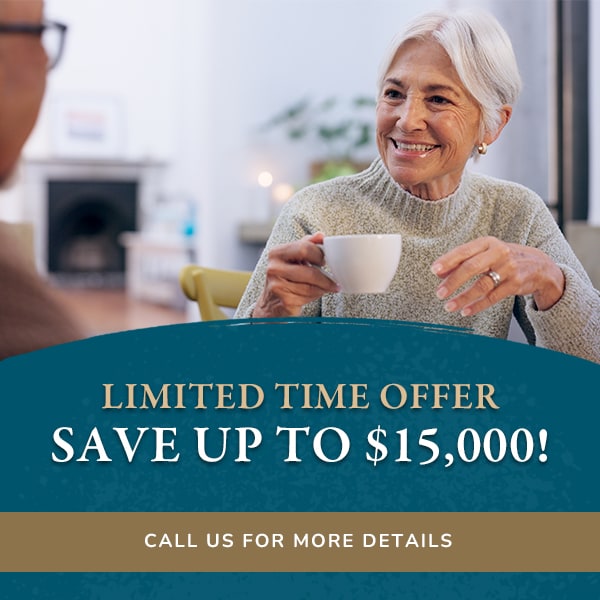Key Takeaways
Natural Aging: The most common cause, aging slows down hormone-producing glands like the thyroid and pituitary.
Menopause & Andropause: Women experience a drop in estrogen during menopause, while men often see a gradual decline in testosterone (andropause).
Stress & Lifestyle: Chronic stress, poor nutrition, excess abdominal fat, and alcohol or substance use can disrupt hormone regulation.
Health Conditions & Medications: Diabetes, thyroid disorders, and certain medications can alter hormone production.
Environmental Factors: External elements such as toxins or pollutants may also influence hormonal changes.
Why It Matters: These imbalances can lead to mood swings, sleep issues, fatigue, weight changes, and cognitive challenges in seniors, making early detection and medical guidance essential.
As seniors age, it’s natural for them to experience changes throughout their body—like a shift in their hormone production.
Hormones play an essential role in your body’s natural functions, but they’re susceptible to many factors that can change their production and lead to a hormonal imbalance. But what exactly causes a hormonal imbalance in seniors?
While the most common cause of a hormonal imbalance is the aging process, it can also be caused by stress, substance abuse, underlying medical conditions, and diet.
Speaking with a healthcare professional is essential if you believe a senior in your life is experiencing a hormonal change. They can work closely with your loved one to design a treatment plan to help. In many situations, a move to senior living may even be recommended to provide your loved one with a stress-free environment.
What Are Hormones?
Hormones are best described as your body’s natural messenger. They’re chemicals that carry messages to the different parts of your body and tell it what to do, when, and for how long. They carry these messages to almost every part of you, from your blood to your muscles.
They control almost everything, including your:
- Metabolism
- Bodily growth, including your weight gain
- Sexual and reproductive functions
- Sleep cycle
- Mood
- Acne development
These chemicals work together in chains to control your organs, how they work, and even affect the overall internal balance of your body and cells. By carrying messages throughout your body, hormones help keep you alive and functioning.
What Does Hormonal Imbalance Mean?
A hormonal imbalance occurs when your body produces too many or too few hormones. Your body produces more than 50 different types of hormones. Many of them can be produced in the wrong quantity and lead to problems.
These chemical messengers are powerful. When produced correctly, they work together in equilibrium to regulate your body’s natural functions. And since they control almost everything, an imbalance can disrupt some of these biological processes.
What Happens if a Senior Has a Hormonal Imbalance?
Hormone imbalances can affect seniors more seriously than most people. However, specific symptoms may vary, as every person’s body is different. The symptoms typically include one or more of the following:
- Mood swings, causing feelings of irritability, anxiety, or sadness
- Sudden unexplained weight changes, either gaining or losing weight despite a healthy diet and lifestyle
- Sleep disturbances, causing either insomnia or irregular sleep patterns
- Lowered energy levels, leading to fatigue
- Cognitive changes related to memory and overall cognitive function
It’s also common for older adult women to experience hot flashes or cold sweats.
What Can Cause a Hormonal Imbalance?
A wide range of potential factors can cause a hormonal imbalance. However, the most common cause is age. The natural aging process can significantly affect hormone production and regulation.
As seniors age, the pituitary gland and thyroid may become less efficient. This is prominent in many women, as menopause often causes a significant shift in hormone production. This can lead to a decline in the production of estrogen. On the other hand, many men experience andropause, which can lead to a gradual decrease in testosterone.
But age isn’t the only factor that can cause a hormonal imbalance. It can also be caused by:
- Periods of chronic stress, which can disrupt the production of certain hormones
- Medication
- Underlying health conditions like diabetes or thyroid disorders
- Overall body weight, especially fat in the abdomen
- Nutrition and diet
- Excessive alcohol or substance usage
Even environmental factors can lead to a disruption of your natural hormone production. However, hormone imbalances are complex, often including more than one direct cause.
Hormone Imbalance in Older Women
Hormone imbalance in older women is commonly linked to long-term changes after menopause. Even in their 70s, women may continue to experience symptoms due to consistently low estrogen levels, which can affect metabolism, sleep, mood, and overall energy.
In women around age 70, hormone imbalance may show up as fatigue, weight changes, sleep disturbances, memory issues, mood shifts, or ongoing hot flashes. Because these symptoms often overlap with normal aging, it’s important to speak with a healthcare professional to determine whether hormonal changes are contributing and to explore appropriate treatment options.
How to Fix a Hormonal Imbalance
Hormone imbalances can pose a serious challenge for many seniors. Since this disrupts your natural bodily functions, it’s essential to work with a healthcare professional to find a suitable approach to fixing a hormonal imbalance.
In some situations, it may be recommended to undergo hormone replacement therapy. This treatment is designed to replace certain hormones with a synthetic alternative. A doctor may advise lifestyle changes, like avoiding certain foods or changing your diet, to address other underlying causes. In some situations, a healthcare professional may even recommend a change in medications, as these can often contribute to a change in hormone production.
Since several factors often cause hormone imbalances, it’s important to discuss the situation with your healthcare provider. They can thoroughly examine your body and situation and help you design a plan to counteract your hormonal imbalance.
The Comfort of Senior Living
Hormonal imbalances can be a frustrating experience for seniors. However, since stress can often contribute to this condition developing, seniors need to try to reduce stress wherever possible—and senior living communities like ours at Meadowcrest at Middletown may be a helpful solution.
Our communities offer a wide range of programs, services, and amenities designed to provide our residents with a low-stress and enjoyable life. We offer customized care plans to each resident to give them the care and support they deserve, and even help with medication management so our residents can rest easy knowing they’re well taken care of.If a senior in your life requires assisted living, independent living, or even memory care, book a visit with us today.





